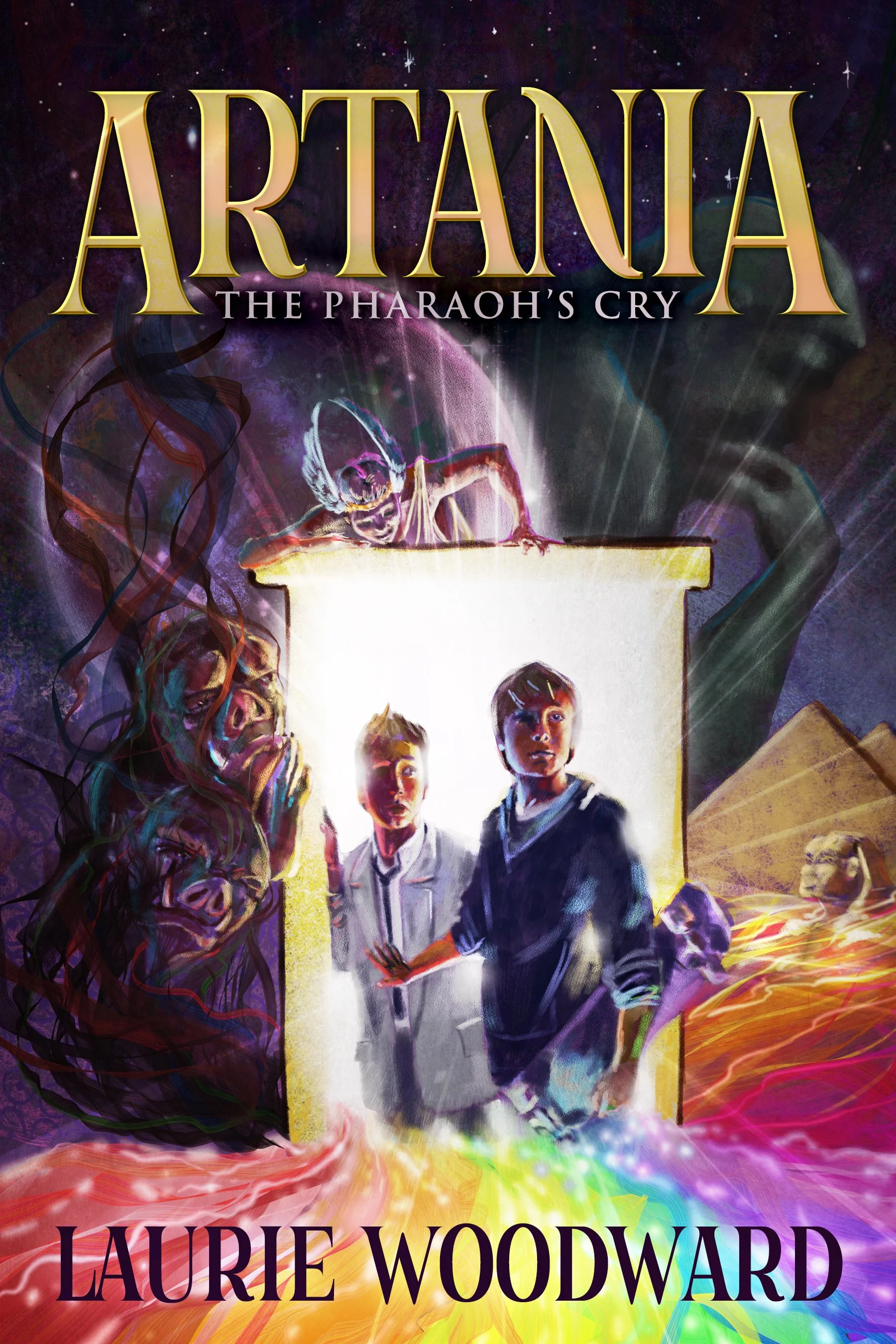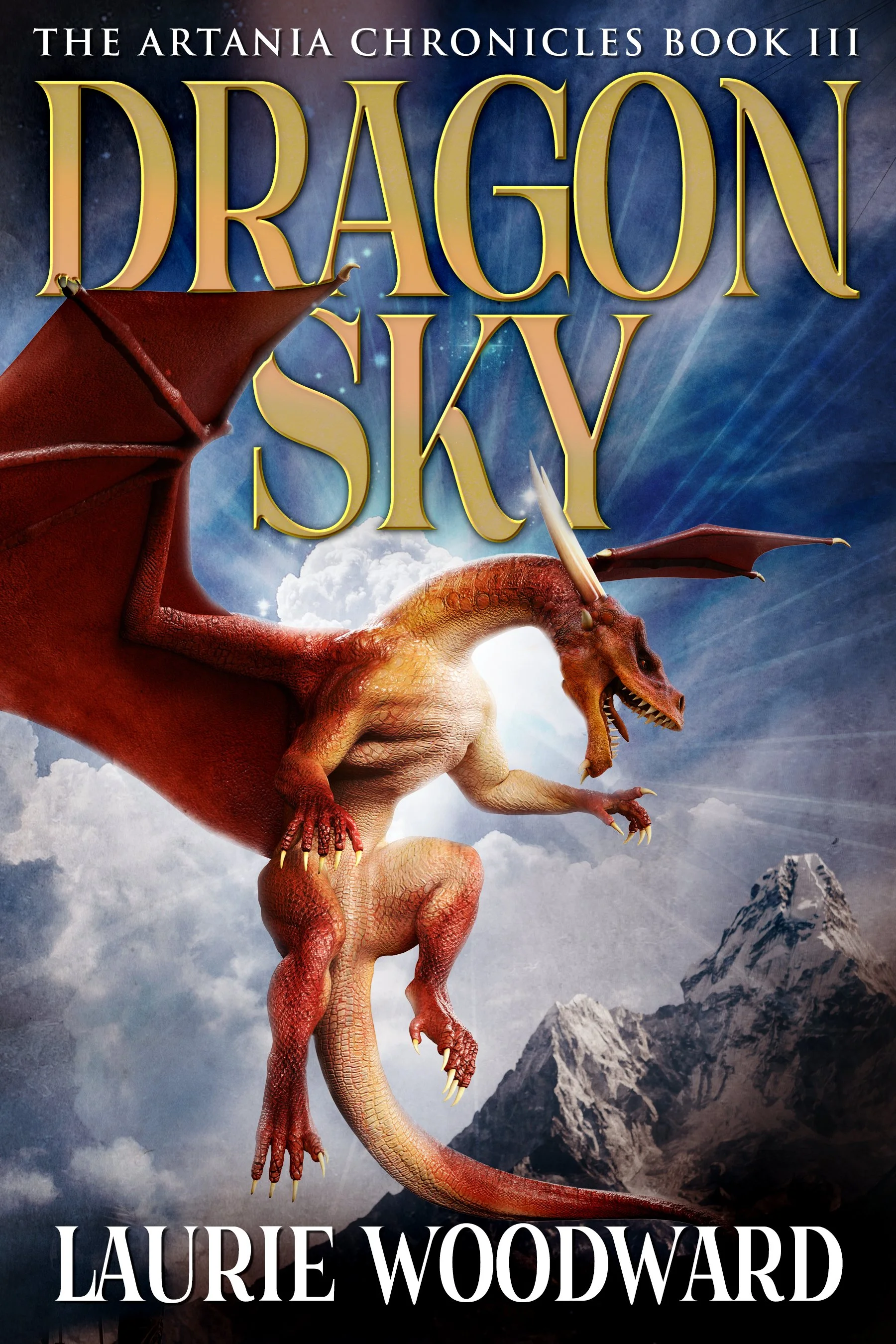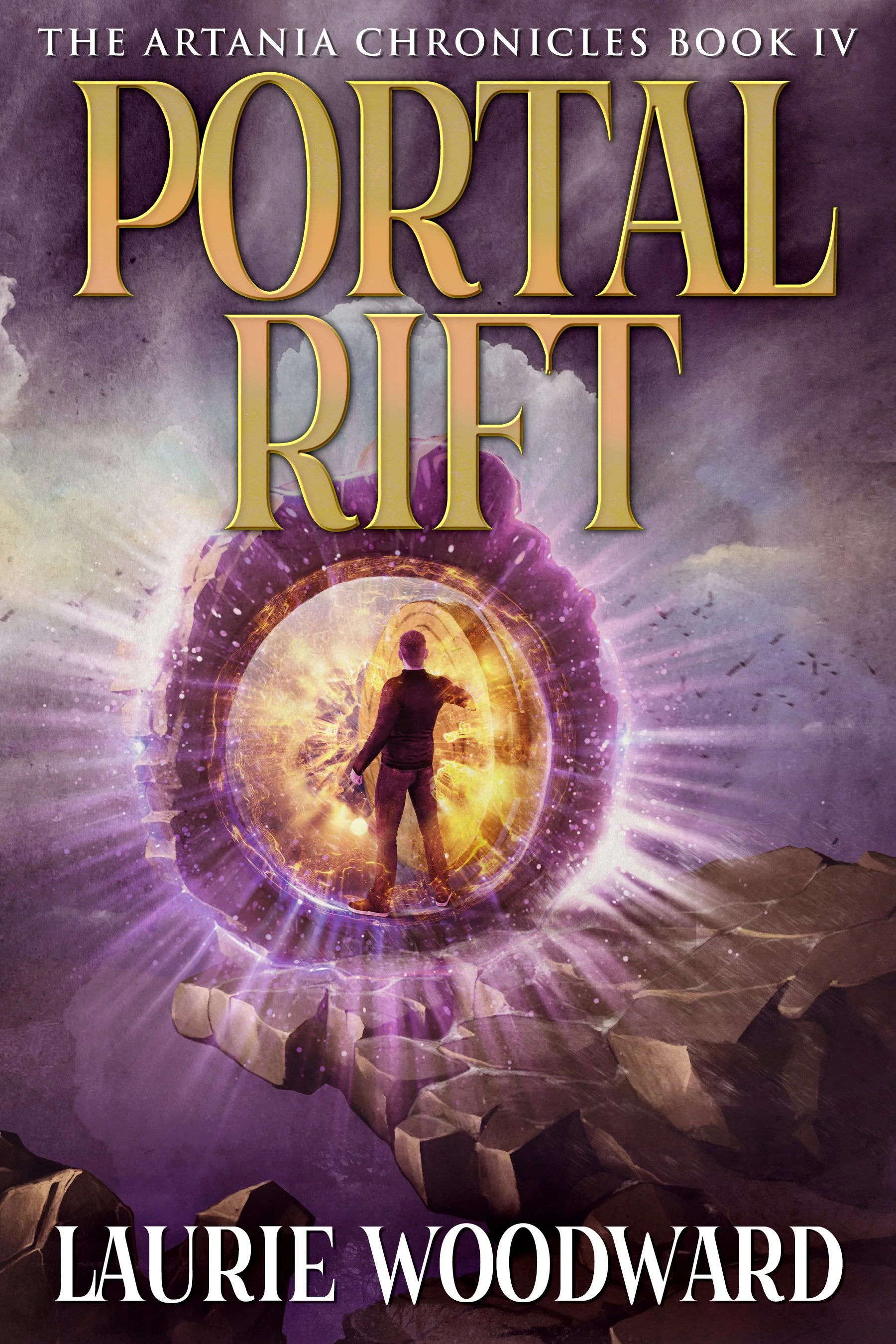Artania - The Pharaohs' Cry (The Artania Chronicles Book 1)
Book summary
Bartholomew, a young boy forbidden from making art, is pulled into a mystical world of living masterpieces, Artania, where everything seems possible. Alongside a skateboarding artist, he embarks on a thrilling journey with Egyptian deities to save this magical realm from destruction. Can they restore art and defeat the dark forces threatening it?
Book excerpt from Artania - The Pharaoh's Cry
Chapter One
The air was more antiseptic than usual that spring morning. Coughing on bleach fumes, Bartholomew Borax III rolled out of bed and put on his monogrammed robe. That’s when he noticed the strange noise.
He cocked his head. It sounded nothing like the usual sloshing mops or whirring vacuum cleaners. When Bartholomew opened his bedroom door and poked his head into the long hallway, a muffled wail met his ears.
“Hic-hic-hic-hoo. Hic-hic-hic-hoo.”
Pulling last night’s precious sketch from under his pillow, Bartholomew gazed at it for a moment. There three generations painted side-by-side. Although impossible, it was a dream he’d had many times. It would have been amazing, Grandfather, Father, and me, all bound in color.
Last night, he’d finally escaped prying eyes long enough for his hands to race over the page. While his pencil scratched furiously, the impossible took shape, and for a while, he lived in the dream.
Sighing, Bartholomew tucked the sketch in his pocket and patted it flat. With the forbidden art safe from snoops, he tiptoed down the winding staircase to the front parlor.
There at the arched doorway, he froze, unable to believe his eyes. It was normal to see Mother sitting stiffly in the wing-backed chair, platinum blonde hair in a tight bun with the veins pulsing in her forehead. But fat tears rolling down Hygenette Borax’s pale cheeks?
No way. He’d seen her disgusted more times than he could count, yet crying? Never. Much too messy.
After eight rhythmic hiccups, she daintily dabbed each eye with a lace handkerchief, gave one long sniff, and rang the little bell on the marble table next to her.
Bartholomew felt a rush wind as Yvette blew past, curtsying three times. Like a white flag, Mother waved her hanky so the maid could drop it in a basket and signal to the butler who always stood at attention in the hall. He strode in with a silver tray containing one neatly folded handkerchief and bowing at the waist, held it out for Mrs. Borax.
“Mother, what is it?” Bartholomew’s voice was barely a whisper.
Mother snatched the hanky in her quivering hands. “It’s your… grandfather. He has… he has… he has… passed on!” she sobbed, hiccupping again.
“Grandfather Alabaster?” Bartholomew gasped.
“No, silly boy. Grandfather Borax. He… had a… stroke. And we… have… to,” hiccup, hiccup, “go soon.”
Bartholomew’s private tutor, Mr. White, entered and stared sadly at his student, broccoli green eyes popping more like a fish than ever.
“Is it true?” Bartholomew asked. But he didn’t need an answer. Mother’s pale face told him everything.
“I’m afraid so,” Mr. White said.
“Not Grandfather! He was so… so wonderful.” He paused remembering.
Bartholomew’s grandfather, Bartholomew the First, had been merrier than a hundred Christmases. Every summer, he would visit and tell stories that made the boy laugh until his stomach hurt. Bartholomew loved hearing over and again how he had turned one small factory into one of the largest bleach companies in the world.
“I used my wits and a trick or two,” he would say, slapping his knee. “The competition never saw it comin’!”
Next, he’d pat whoever was closest on the back, which was usually Mother. With a wan smile, she’d endure the back slaps then quietly excuse herself. Bartholomew knew she was off to bathe and change; hands on her clean dress would never do. Bartholomew smiled at the memory.
“Tell him the worst of it,” Mother said.
“Well, you see…” Mr. White cleared his throat again. “…your grandfather put a strange provision in his will. In order for your mother to... hmm…hmm… inherit the business, you must... hmm... move to his house in California and live there until you are twenty-one.”
“If only your father were here, he’d know what to do!”
Bartholomew shrugged uncomfortably, not wanting to imagine how life might have been different if Father were here. If he had survived the accident. That terrible day just weeks before Bartholomew was born when Father had hit his head and drowned in a mud puddle. He’d been jogging on a wooded path, and reports said that he must have tripped right in front of the boulder that knocked him unconscious as he fell face down in the puddle.
Bartholomew heard in whispers how that accident had forever changed something in Mother, turning her from a smiling bride into the germaphobe who kept hand sanitizer on every table and made Bartholomew bathe six times a day.
“And that house is disgusting. So fil-thy!” Mrs. Borax wailed, burying her face in her hanky.
Mr. White walked stiffly forward to pat his hiccupping employer on the back. Bartholomew was surprised that for once, she didn’t rush off for a shower.
He nodded solemnly. “May I be excused?”
“Of course, Master Borax. I understand you wanting to be alone.”
He felt numb. He’d never get to hear one of Grandfather’s stories again. The wild-haired man used to straighten his bent form and wink before starting in on a giggly story. Bartholomew loved Grandfather’s elfin face and the way his eyes crinkled in the corners when he was spinning a tale or pranking someone. He often sketched the man and even soap-sculpted a pretty good likeness the summer before.
But on the other hand, the idea of moving intrigued Bartholomew. Homeschooled and lonely, he had long dreamed of escaping Mother’s antiseptic mansion. Hygenette loathed travel so much that he had been to Grandfather Borax’s house just once when he was six for Grandmother’s funeral.
They’d had their own train car designed just for the journey. Of course, Mother first had it stripped to the walls, repainted, and carpeted, along with installing brand new plastic seats, tables, and shining bathroom fixtures. But renovations weren’t enough. Next, she ordered their maid army to attack with an enough disinfectant to make a bleach bomb.
The trip may have been the same old take-a-bath-prison, but the Borax mansion in Santa Barbara had been too wonderful.
Real trees and shrubs surrounded the estate, not the plastic ones Bartholomew was used to. And the rooms! All kinds of fantastic things filled them: old photos, knick-knacks, and souvenirs from Grandfather’s travels around the world. Every one was a different color, from vibrant orange in the kitchen to humming violet in the downstairs bath. A study with deep wood paneling that hinted at secret passageways held an insect collection, telescope, and star charts. Grandfather’s own oil paintings and outrageously designed furniture gave Bartholomew a thousand ways to feed his imagination.
One day after a long game of hide-and-seek, Grandfather took him for a walk. The grounds around the estate were even more magical than the house. With paths to secret gardens, koi ponds, and fountains around him, he felt like one of the adventurers he’d read about. He was Robinson Crusoe stranded on an island, James in a giant peach, or Harry Potter riding a Nimbus 2000.
Plants of all types seemed to bow as Grandfather entered a glass-walled conservatory draped in vines. As soon as they were inside, he grabbed a handful of soil and balled it in his hand.
“Bartholomew, what could you create with this?” he said, holding out the dark globe.
Bartholomew knitted his brow trying to think of the correct answer. Was this a test? “Soil is good for growing things like trees and flowers,” he said, trying to sound older than his six years.
“Yes, I know. But what more do you see?” He looked expectantly into the boy’s face.
“A brown tennis ball?”
“No. I want you to look further. Use that imagination of yours. Don’t tell me what it is. Dream. Like your father used to.” He paused and held it closer to Bartholomew’s face.
Bartholomew stared at the brown sphere. At first, he saw nothing but a clump of dirt. But as he looked more deeply, shapes appeared. He gazed into the emerging planet.
“There are rivers in the cracks and mountains in the rocks, and there is a little city. I see people, all kinds of them, tall ones and round ones with eyes in weird places.” As he spoke, a grin sprouted on his face.
“What wonderful eyes you have,” Grandfather said, tousling the boy’s hair.
“It’s beautiful,” Bartholomew whispered.
Grandfather nodded, then turned Bartholomew’s face gently toward his. He explained how he and Father had often painted here, their splattered smocks jiggling with every joke.
“This is our special place. Generations of Boraxes have come here to be true. From well before I was born on down to your Father. We have all found inspiration here. Please remember that Bartholomew.”
“I will.” The boy had bowed his head solemnly and glanced around taking mind photos.
Grandfather would have understood my art.
Bartholomew stopped halfway up the stairs and crumpled.
But I never told him. The marble was cold. He looked for warmth in the crystal chandelier, but it only made him shiver. Bartholomew’s vision blurred, making it hard to focus on the lights while wet droplets fell on his robe. Sniffling, Bartholomew brushed his cheeks roughly with the back of his hand.
He wiped his nose on his sleeve. So what if I get stains? Who cares anyhow? He’s gone! My best friend is gone. Reaching in his pocket, he pulled out his recent sketch. He unfolded it and stared at the dream of them all together.
“Just nonsense!” He crumpled the drawing in his hands and shoved it deep into his pocket. Hugging his knees to his chest, he rocked rocking back and forth.
He sat for hours just like that, listening to his mother’s grating complaints below. The day wore on until he finally returned to his room. Standing in front of the waste bin, Bartholomew pulled out his crumpled sketch and slowly tore it into pieces. As each shred of creation fluttered downward, memories flashed. Soon every bit of his glorious drawing was gone.
Just like Grandfather.
Bartholomew rang the silver bell on the desk and waited for the curtsying Yvette to enter his room.
“Filth. Get rid of it,” he said with a vacant stare.
Chapter Two
The bronze Thinker knew it was coming. The Deliverer had destroyed art. Who would be lost this day?
Far below in the valley, the war raged on. Scores of sketched and sculpted creations were struggling to preserve this land where art was alive. For centuries, every time a human lifted a paint brush or dipped his hands in clay, a wondrous being like The Thinker had been born. Artania’s leader loved how their landscape was a perfect blend of watercolor, collage, and mosaics—a mix of multihued lives.
In Pharaohs’ Valley, painted Egyptian warriors and Greek sculptures alike battled Shadow Swine, a hunchbacked army intent on bringing art to an end. Every year, these yellow-eyed, bat-eared creatures attacked in greater numbers as brave Artanians tried to drive them back to their underground lair.
But Artania kept losing.
Shards of light leaped off crossed swords and assaulted his eyes. The Thinker blinked. With an effort, he continued watching as one young hieroglyph squared off with a particularly vicious Shadow Swine.
“Go back to Subterranea where you belong!” the painted stick figure soldier cried.
The pig-nosed monster opposite hissed, spittle spraying through jagged teeth. “Not before I take a few creations with me,”
His hulking body shadowed Hieroglyph, but he didn’t flinch. Instead, he raised both fists and glared at his enemy. The Thinker shivered with pride.
Hieroglyph was young and brash. Like many Artanians, he saw through painted eyes. He couldn’t help it. He was full of the joy the creators felt in the moment of conception. Instead of paying attention to what was going on around him, he was focusing on the beauty of each blow.
Hieroglyph couldn’t see the hole opening behind him as he drew his fist back. But The Thinker could. Crying out a warning, he leaped to his feet, dreading what might come next.
The hulking Shadow Swine lifted a jack-booted leg and kicked. Sputtering, Hieroglyph staggered back, closer to the black pit. Arms outstretched, scant inches from the edge, he started to regain his footing.
The Thinker sighed.
But then the Swiney’s tar-like hands reached out and shoved. Dust billowed, and when it cleared, Hieroglyph was gone.
“No!” the Thinker cried, staring helplessly into Pharaohs’ Valley.
Sickhert’s army was winning. From their underground lair beneath Artania, the hunchbacked monsters lined up immediately under the soil. Then they opened their horrible mouths, and with great slurps swallowed brilliant chunks of the valley’s beauty.
Like a fading photo, every bite turned the valley whiter. At the same time, it shrank. If something didn’t change soon, the entire land would become the Blank Canvas, a white hole where no art lived.
Apis the Bull brayed. “Retreat! The battle is lost!”
Creations fled both right and left, trying to dodge the ever-growing crevices. Panicked cries filled the air. The Bull led them away to the safety of color but seventeen brethren were gone. Swallowed by the earth, they vanished into the caverns of Subterranea below.
The Thinker hunched over, knowing the horrors that awaited these beautiful paintings, sculptures, and hieroglyphs. A single tear rolled down his bronze cheek as ripples of loss threatened to take him over.

















Praesent id libero id metus varius consectetur ac eget diam. Nulla felis nunc, consequat laoreet lacus id.